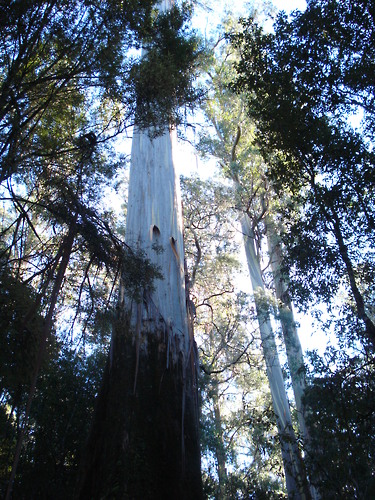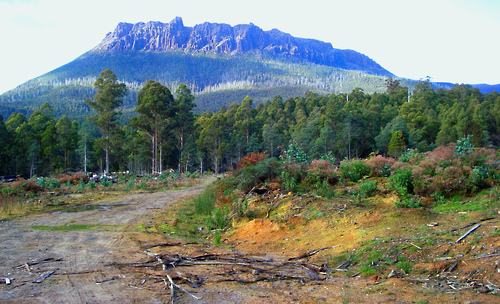First Australian REDD deal gets go ahead in Tasmania
28/07/09
Australia’s first Reduced Emissions from Deforestation and Degradation (REDD) project has been approved in Tasmania.
The 860 hectare private estate is run by Sydney-based Redd Forests. Mongabay.com reports that logging of old-growth forests in Tasmania is increasingly controversial: where environmentalists clash – sometimes violently - with forestry companies.
It is anticipated that come Copenhagen the REDD mechanism will officially help provide landowners with alternative forms of income, but in the meantime trial REDD projects are springing up around the world. Redd Forests have met with the international Climate, Community and Biodiversity Standards (CCBS) and received approval for its pilot project “Creating a Safe Deposit Box for Carbon”.

Old growth forest in Tasmania
"This is a win-win in the fight against climate change” said Redd Forests’ Managing Director Stephen Dickey.
In theory REDD will allow landowners and countries to secure an income for protecting their forests instead of relying on traditional forestry income. Avoiding deforestation and degradation gives a host of co-benefits for biodiversity, ways of life and, of course, reducing greenhouse gas emissions. Landowners can pass the logging rights to Redd Forests in return for a percentage of the proceeds of sale of the resulting carbon credits. In return the landowner commits to manage the land and promote the natural regeneration of old growth forest.
Redd Forests will now expand their project to other, larger tracts of threatened forest and “the goal is to protect half a million hectares across Australia within the next five years” said Dickey.

It has been estimated recently in Proceedings of the National Academy of Sciences that some old growth forests in Tasmania stores more than 650 tonnes of carbon per hectare. This figure exceeds even the figure stored in many tropical rainforests and may change the way the world views temperate rainforests in terms of their carbon value.